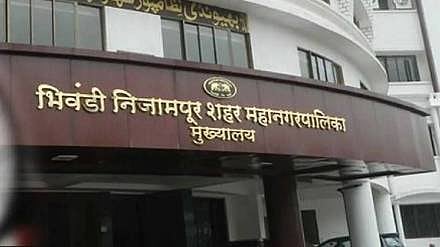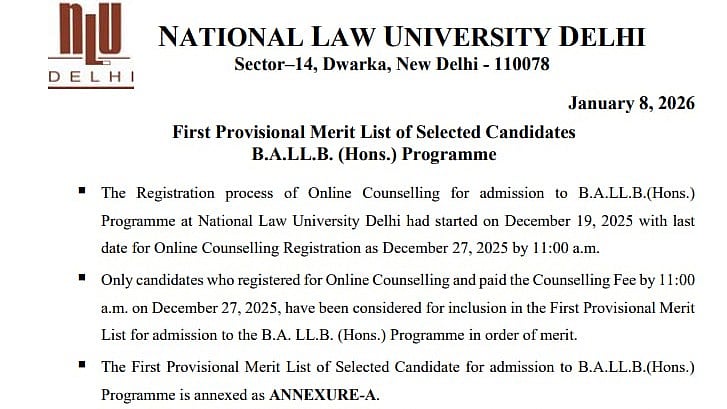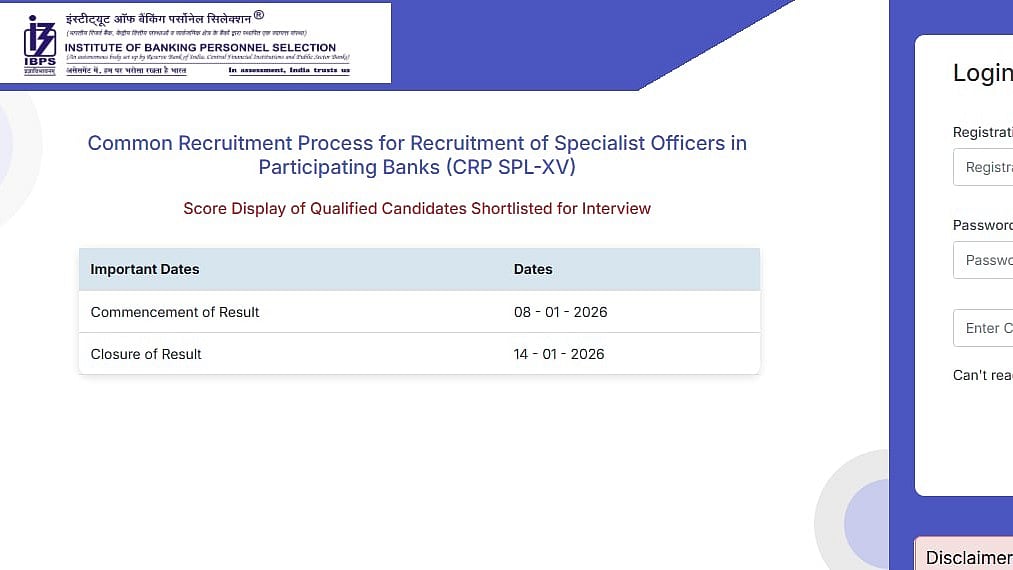On the first day of her new job, British Prime Minister Liz Truss declared her ambition to create a “modern brilliant Britain” with opportunity and prosperity for all. Each day Truss will act to “transform Britain into an aspiration nation with high-paying jobs”. Nothing unusual here - new political leaders make grand promises to change society. To take just the past three British PMs, Johnson was going to "level up", May wanted to extinguish the “burning injustices” of inequality, while Cameron dreamed of creating a “Big Society”.
Yet those familiar with the richness and diversity of the UK’s higher education system will recognise that the new premier inherits a sector that is both modern and brilliant, perfectly capable of producing the graduates to both create and fill all those skilled jobs. Undeniably, British universities act as a beacon for talented and energised students and academics from across the world, who make invaluable contributions to the wealth of the nation in a myriad of ways. Surely the self-declared "education prime minister" will realise this better than anyone? But as Truss finalises her cabinet, many in the sector watch on with apprehension. The former accountant and Treasury minister undoubtedly understands the cost of the higher education sector, but does she truly understand its value? Will universities get the funding they deserve, and what will happen to the UK's popular Graduate Route visa?
To predict how a leader will act, and the likely impact of their actions, we must consider also their character and the particular context in which they find themselves. How will the Truss era be remembered for international student mobility to the UK? The heights of the New Labour period or the depths of the Theresa May years? We can consider the new premier’s parliamentary and public record; we can study the current forces driving change in the UK higher education system; we can look to the likely pressures on her to move one way or another. But let’s start by asking, what does higher education really mean to Liz Truss?

Quads and quadrilaterals
Mary Elizabeth Truss’s time at university coincided with the death throes of Major’s conservative government, a period of sleaze and mutiny that will not be unfamiliar to today’s political scholars. As a young Liz threw her mortarboard in the air after sitting her last Finals exam, Tony Blair and his chancellor Gordon Brown were settling into Downing Street, ending eighteen years of Tory rule. Blair, of course, came to power not on a cry of cleaning up politics but of “education, education, education”, pouring money into schools while pushing for half of all young people to enter higher education. University was the time that Truss cut her teeth in politics, and she would not be the first ambitious conservative politician to take inspiration from Labour’s most electorally successful prime minister. But is education more than an election slogan to Truss?
In common with all but four of the sixteen post-War British PMs, Truss attended Oxford University, where she read Philosophy, Politics, and Economics, an intellectually rigorous humanities degree that revolves around wide reading and precise debate. In terms of understanding the value of higher education, it must count as a huge positive that Truss attended one of the world’s greatest academic institutions, and if her experience was at all typical she will have discovered that the most brilliant minds often belonged to students who had travelled the furthest. So clearly Truss must know first-hand the benefits of higher education and of international student mobility.
Of course, Oxford University was and still is an outlier among UK higher education institutions (HEIs) - brilliant, certainly; modern, perhaps not so much. A much broader survey of the sector is needed to fully understand how HE can transform prosperity and opportunity within today’s Britain, but so many emerging from the Oxford bubble imagine the rest of the sector to be subpar versions of their own experience. So without a postgraduate qualification or even a higher education institution within her constituency, is there not a danger that Truss’s vision of UK HE is blinkered? With two daughters approaching university age, perhaps this is unfair – as every international officer and student counsellor knows, the most searching questions about degree courses often come not from the candidate but from their parents or guardians!

Sam Burney
Freedom, enterprise, fair play
Truss was quickly elevated into her first government job, succeeding Sarah Teather as the undersecretary for Education and Childcare in 2012, before quickly moving on to cabinet positions within Justice and the Treasury, followed by promotions under Johnson to become the Secretary of State for International Trade in 2019 before becoming Foreign Secretary in September 2021. Hansard records no trace of an interest in higher education by Liz Truss during her relatively short period on the back benches, and her limited contributions to parliamentary debate on HE have emanated directly from her governmental briefs, mostly around funding. There are no recorded statements relating to international students – for example, Truss was not among those to speak in the debates on international students and migration targets which laid bare the scale of cross-party parliamentary opposition to Theresa May’s catastrophic curbs on post-study work for international graduates.
From her earliest political activism Truss has been closely aligned with free market economics. Long before she was a conservative Truss was an economic libertarian – while her membership of the Liberal Democrats at university has caused some embarrassment later in her career, it is of greater political interest that she joined the Hayek Society during this same period, presaging her founding of the Free Enterprise Group of conservative MPs in October 2011, and her co-authorship a year later of the free market tract Brittannia Unchained: Global Lessons in Growth and Prosperity. On the steps of Downing Street Truss defined the British people by their faith in "freedom, enterprise, and in fair play" - she was, of course, also talking about herself.
Fault lines
The first obvious big takeaway is that we should probably expect no reversing of the decades-long marketisation trend within UK higher education. There is no reason to suspect Truss has any instincts for the State to further intervene in higher education save to arm potential customers (/students) with the data they need to make informed purchase decisions (/education choices). Truss recognises education as the means by which those from disadvantaged backgrounds can create opportunities for themselves, with qualifications translating into career options. Just don’t expect her to pump in extra taxpayer money to fund it.
Nor does Truss’s selection, or her appointment of Kit Malthouse as Education Secretary, seem to threaten in any way the implementation of the Augar Review which is transforming how higher education is funded. As Chief Secretary to the Treasury, Truss is well versed in the fundamentals of HE funding and the key sweep of the reforms are likely to continue with little deviation. Many believe these reforms secure long-term funding for the sector, thereby protecting the prized quality within UK HE. But unfortunately the report contained a fundamental flaw, a myopia around the value to the UK economy and society as a whole of the creative industries, a shortsightedness that if left untreated would seriously hamper Truss’s chances of meeting the ambitious goals she has rightly set for the country. Combined with a narrowing of the UK’s school syllabi, this bias in funding, if left uncorrected, could also threaten some courses or departments, reducing the diversity of courses that is such an attractive feature of UK higher education. In a worst case scenario, whole institutions could even be threatened, forcing expensive bailouts and/or lasting damage to confidence in the British university system and its support for international students.
In the short term, underfunding could actually boost some institutions’ interest in attracting international students. With the support of sector bodies such as the British Universities International Liaison Association (BUILA) and Universities UK International (UUKi), and with strong experience within the sector, UK universities are particularly well placed to do this in a sustainable way for the lasting benefit of students and institutions alike. Universities can lean on a well trained network of education consultants across the globe who are already familiar with the UK education system and who can help students and parents find the right course from what must seem at first glance an overwhelming tapestry of options. But they must tread carefully for the sake of their institutional reputations as well as the brand of UK education as a whole, especially in the context of the recent surge in international student enrolments following changes to graduate visas.
The future of Post-study work
Which brings us to the question that refuses to die: will the UK continue to offer generous terms to international graduates? It is the question I was asked time and again on my recent visit to India, and which I have no doubt is based on the painful memory of the scrapping of the previous incarnation of the Graduate Route (Post-Study Work/PSW). Here I offer just two observations, one comforting, one less so, both based on recent history.
There was only one reason that PSW was scrapped and that it took so long to be resurrected: Theresa May. The lost decade of UK international student mobility was almost entirely down to May’s anti-immigration posturing at the Home Office and her subsequent stubbornness as PM. On one side were politicians from all parties, many of whom (unlike Truss) had HEIs within their constituencies, the Treasury, CBI, the university sector and important Commonwealth partners, and, it seemed, the public; on the other side, Theresa May. May’s apparent reason for going to war on international students – with all the collateral damage that this entailed – was to game the immigration figures for the sake of some Daily Mail headlines, so the moment that the UK voted to leave the EU, the reason for May’s policy disappeared. Yet she clung on to the policy until the very end. There is no reason to believe Suella Braverman, the new Home Secretary, will display similar political recklessness.
If that is not enough reassurance, consider this: Truss’s most recent roles have been spent seeking out trade deals for a post-Brexit UK, flying the flag for Global Britain and seeking to strengthen the Commonwealth and conclude bilateral agreements with major economies. In particular, Truss has singled out India as a priority partner, and will be keenly aware of the importance that PM Modi has placed on visas during trade negotiations. Last month, she promised Conservative Friends Of India that she will continue to look at ways to use the visa system to attract students (although her use of the formulation “brightest and best” leaves open the possibility of further tightening around student visa criteria). The Graduate Route is not going anywhere.
But there is no place for complacency. The sector needs to be on guard for unintended behaviours that could unwittingly undermine the UK’s attractiveness. We must never forget the enormous investment international students and their parents make in UK study, not only financially but also in time and effort. It is vital that higher education institutions remain in control of their messaging to international students to set fair expectations around post-study career opportunities, just as they continue to invest in order to improve the quality of their careers and employability teams. Institutions must avoid the short-term trap of compromising on robust admission procedures in order to grow international cohorts, and the sector should push ahead with self-regulation, tricky as it will be, on a code of values for agent management. The question mark posed by edtech companies and agent aggregators also needs urgent discussion. Above all, institutions must be ready to support the students they recruit, with all the internal training and investment this entails. Meanwhile UKVI watches on, and hungry competitor destinations stand ready to take advantage of any misstep.
Time for a new start?
Although a Truss administration is unlikely to significantly change university funding or student immigration policy, it is very possible that a major shift in university admissions system has moved a step closer. It is a problem in creating an “aspiration nation” that UCAS requires students to shortlist universities before they know their results, reducing applications by lower income candidates to the most aspirational universities. It is in this spirit that Truss has proposed a radical shakeup of university admissions, to empower students to apply to university after their A-level results have been published, with the objective of encouraging students from less advantaged backgrounds to aim higher.
In itself such a proposal is in no way new, but Truss has spelled out that for this to work the UK must shift its Bachelors degrees to a January start system, similar to Australia. Any implementation is unlikely to be rapid (and any impact on postgraduate study would be some years away). At any rate, so long as there remained strong international demand for a September start, it is likely to continue. In terms of international student recruitment, there could be significant positives for a shift to a January start Bachelors, including the opportunity to add in bridging courses, and with sector consultation and policy nuance it should be possible to minimise temporary disruptions. It would be equally important for policymakers to listen to voices across the sector about impacts on international applicants, and for universities to appropriately tune admissions machinery.
Policy ideas tossed out during popularity contests within political parties are not the best guide of future manifesto promises, and yet there are reasons to believe this idea could be a keeper. Not only would such a policy sit firmly within Truss’s political comfort zone, it would also have the twin benefits of being both eye-catching and relatively light on the public exchequer, a quixotic combination for a new self-styled Education Prime Minister moving into election mode. It is difficult to imagine that higher education admissions reform is likely to be anywhere close to the top of the PM’s urgent in-tray. Then again, could it provide a welcome distraction from the pressing matters of inflation, the cost of living crisis, public debt, war in Ukraine, the Northern Ireland protocol, and the climate crisis (among others)? One for the 2024 election manifesto then?
Unchaining Britannia
Further growth in the UK’s international standing can be achieved, but it will not be sudden and will require significant increases in funding to institutions to protect and enhance the teaching and research quality across the sector. This must be done in lockstep with increased resource for further education, and for the broader skills and training agenda (how a Truss government approaches the implementation of lifelong loan entitlements will be an early test of intent here). Crucially, the Augar reforms should not be seen as the final word on HE funding if the UK is to realise its potential. Considering the nation’s finances, these are understandably difficult arguments to make. But it is clear that a higher education sector well funded from the sciences to the arts is a bare minimum if Britain is to be truly Global and is to enjoy high Growth and Prosperity. It seems a lot to ask for and too much to expect, but given her background and standing in her party, Truss could be exactly the right person to make this case. By consulting the sector, Truss should discover that the aims of the sector align with not only her own goals, but also those of voters.
Finally, we should be under no illusions that in the context of international student mobility, there are forces far beyond the powers of a mere Prime Minister. There are plenty of other destinations that international students can choose to join, and their policies to attract and support international students and graduates matter greatly to the UK’s position. Traditionally the UK’s success has come at the expense of the market leader (USA) and current surges in demand for UK courses are as much to do with border policies and visa backlogs in anglophone competitors as with enlightened UK student immigration policies and innovative responses by academics and international offices to pandemic impacts (as important as the latter have been). But similarly, the bonds of friendship that tie the UK with overseas alumni, institutional partners and counsellors cannot be broken by a change of government policy, and the hard-won reputations of individual institutions will always outshine any change in perception towards UK plc.
A prime minister rarely gets to choose how they will be remembered, as Truss’s three conservative predecessors can attest – Johnson barely got started Levelling Up, May never made a dent on the “burning injustice” of social inequality, while Cameron’s Big Society never even made it off his Blackberry. Higher Education is a sector that the UK truly excels at, with potential both as an engine of growth and to act as a beacon for a Global Britain. There is every sign Prime Minister Truss understands this quality and its value to the UK’s economy and international relations, and if she is able to quickly redress some of the imbalances of Augar while consulting across the sector, she may just be able to buck the trend and create a lasting legacy for the nation and for aspiring students across the world. In short, enable higher education to flourish and the high-paying jobs will take care of themselves.
The author is a recruitment specialist and Regional Manager, India at Falmouth University.








